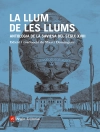In 1685, the revocation of the Edict of Nantes made Catholicism the only recognized religion in France and criminalized the practice of Calvinism, throwing the minority Protestant population into crisis. A Peddler’s Tale personifies these events in the story of Jean Giraud, a Protestant merchant-peddler, and his various communities. Drawing on Giraud’s account book; municipal, parish, and consistory records; and death inventories, Kristine Wirts ably reconstructs Giraud’s familial, commercial, and religious circles. She provides a detailed description of the persecution of Giraud and his fellow church members in La Grave, France, as well as their flight across the Alps to Vevey, Switzerland. The town’s residents did not welcome all refugees equally, often expelling Huguenots without social connections or financial resources. Those allowed to stay worked diligently to reestablish their lives and fortunes. Once settled in Vevey, Giraud and his extended family supported themselves by moneylending and peddling books, watch parts, and lace products.
In contrast to past studies on the Huguenot diaspora that often depicted those fleeing France in heroic terms, A Peddler’s Tale exposes the harsh economic realities many exiles faced, as well as the importance of social relationships and the necessity of having financial means to secure passage and sanctuary. Wirts contends that Huguenotrefugees who succeeded in obtaining permanent residency in Vevey shared one important element: many derived their livelihood from the burgeoning economic ties and social bonds that emerged with the rise of capitalist markets. A compelling microhistory, A Peddler’s Tale ultimately illustrates the role and power of informal networks in sustaining and fostering early modern communities.
Om författaren
Kristine Wirts is associate professor of history at the University of Texas–Rio Grande Valley.












